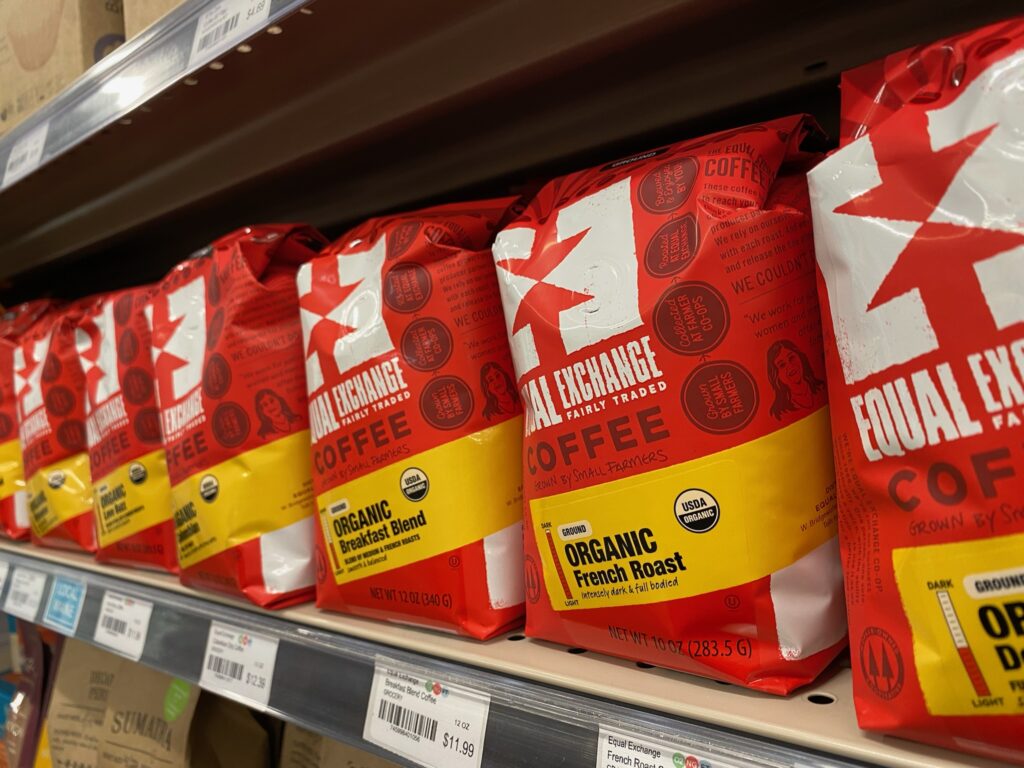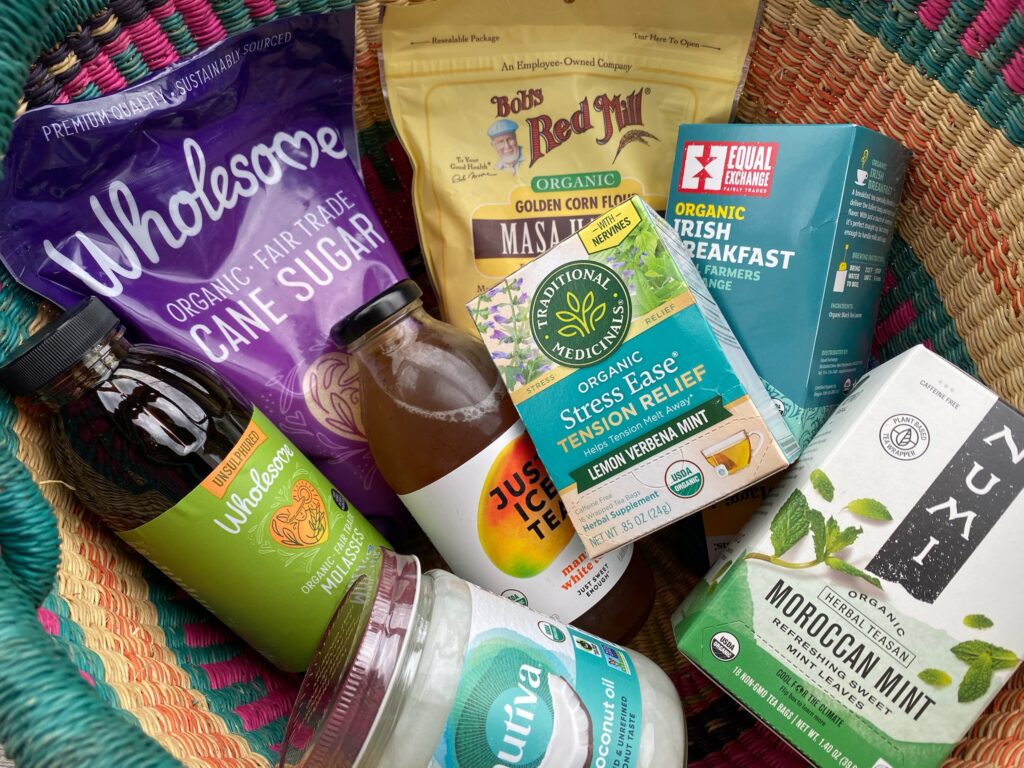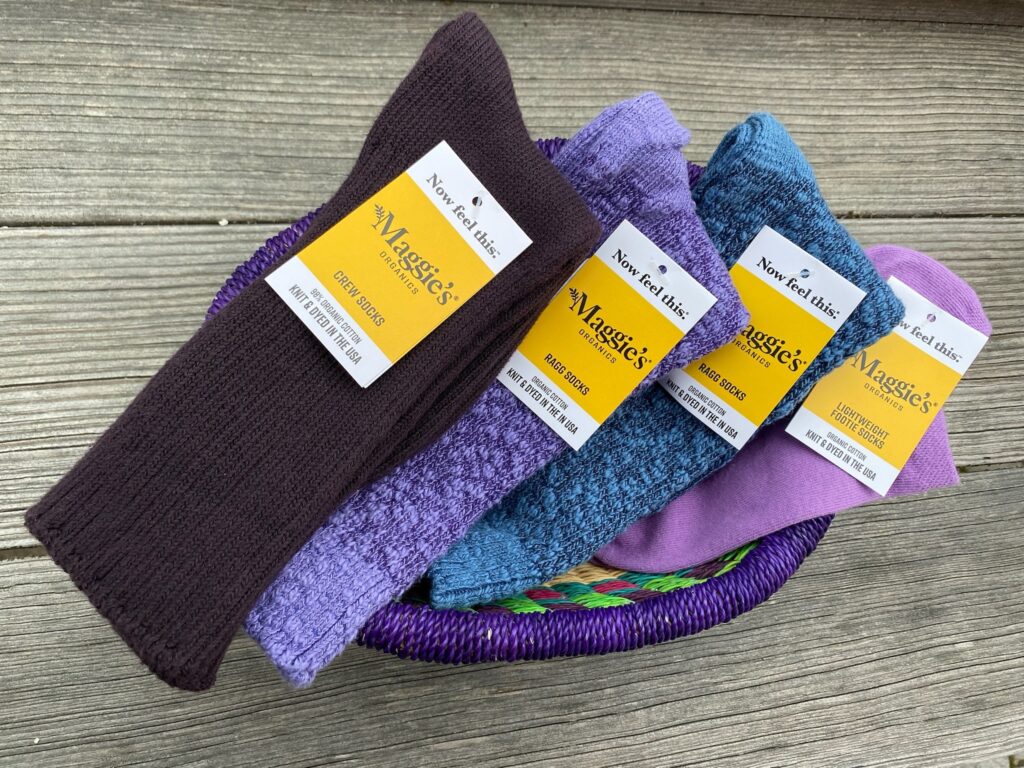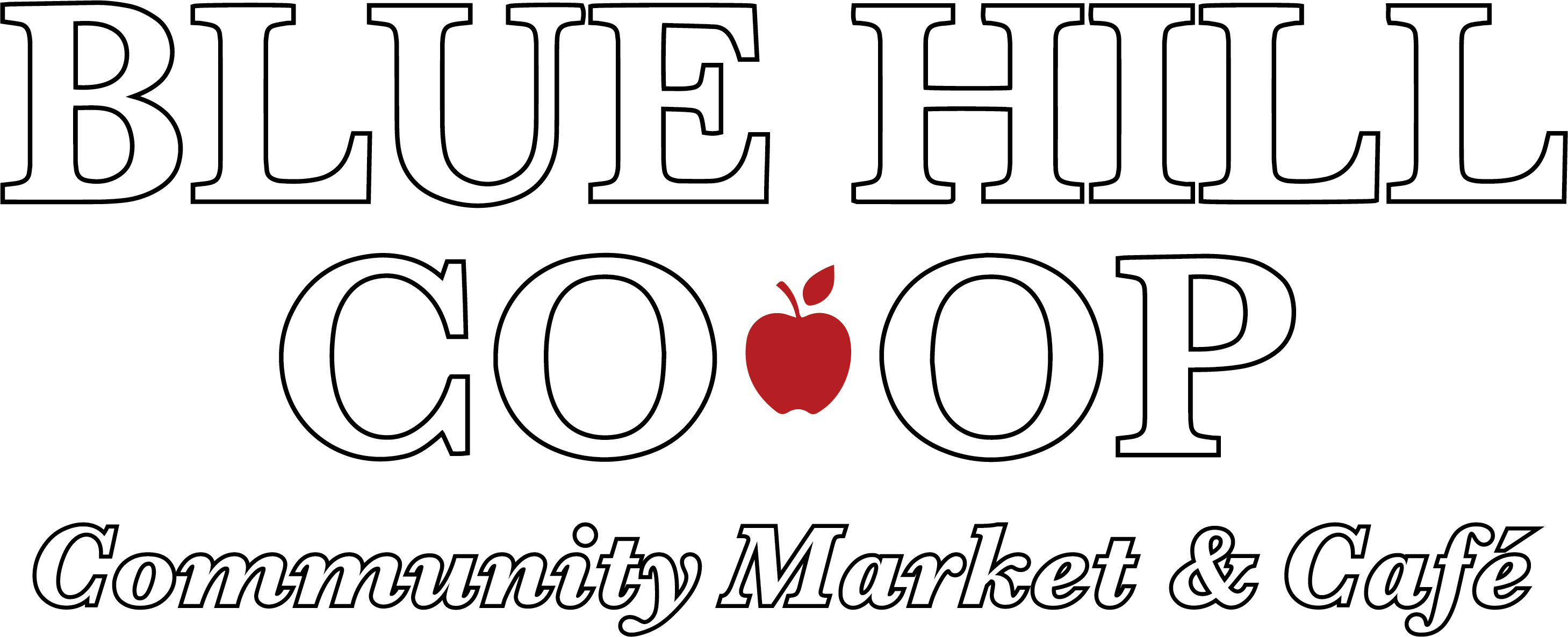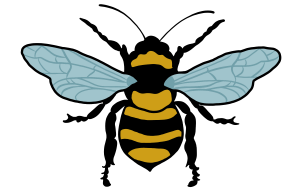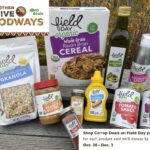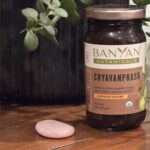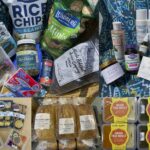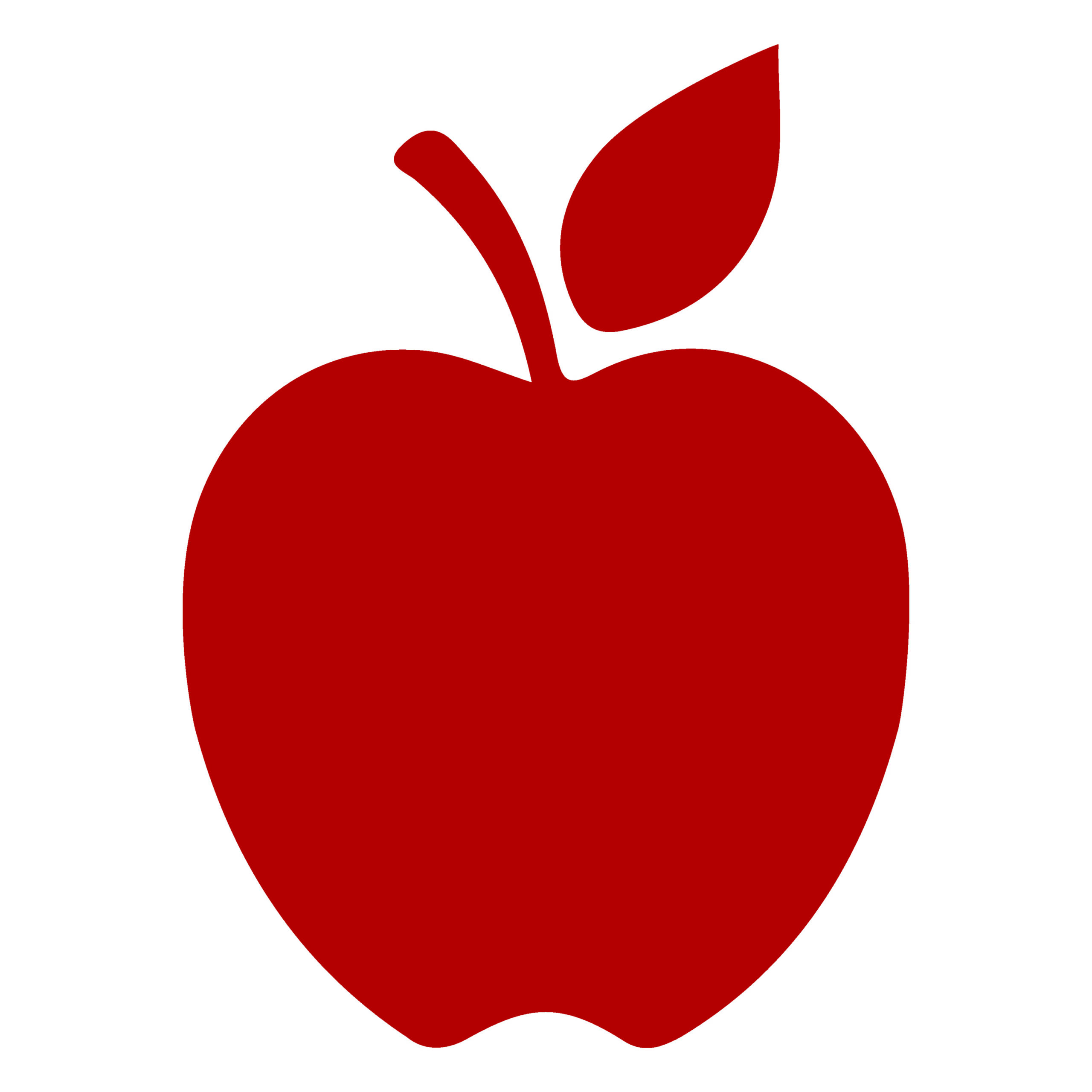If you are a coffee connoisseur or a chocoholic, you may have noticed a logo or the designation of “Fair Trade” indicated on product packaging. In the United States, there are five widely recognized fair trade labels: Fairtrade International, Fair Trade U.S.A., Fair for Life, the World Fair Trade Organization and the Fair Trade Federation.
The movement behind these logos is a vision for an economy based on solidarity. In the late 1980s, voluntary sustainability initiatives began forming due to civil society’s increasing concern about the conditions people face while producing our food and the desire to look for purchasing guidance through labels that would match their belief systems. Fair trade certifications address power imbalances that marginalize producers and place fairness at the heart of economic relations to transform trade and aim to empower themselves and their families. Fair trade certifications ensure fair wages, safe and healthy working conditions, and environmental protection, as well as access to the global market and assistance in creating self-sufficient situations where the producers can support themselves and their communities long-term. Fair trade organizations will often go beyond just making sure fair prices are being paid in exchange for goods, and also foster other programs that enable producers to grow their communities. Many actively promote direct and long-term relationships, business transparency and accountability, democratic organization through the support of cooperatives, profit sharing, education and capacity building, gender equality, and banning forced and child labor.
Because fair trade is a global movement, fair trade labels are varied and can be confusing– instead of a single authority defining a fair trade standard, there are a growing number of organizations that each set their own standards. In the US, many of these certifiers have joined together into larger organizations, which collectively adopt unifying fair trade principles to follow and promote under a single label.
So what exactly is fair trade certified? Certification means that the item featuring the label was monitored through all production levels to meet the standards by a certifying body. From planting the seed to reaching store shelves, the item has met all fair trade requirements. The “all production levels” part of that statement is key, since items that are not monitored through every level of production cannot be certified. At times, you may see variations of labels that certify only one level of production, such as the factory level. You may also notice products that contain specific ingredients or materials that are certified as fair trade, while other components of the product are not certified. In some cases, producers and the companies that are helping import goods may forgo third-party certification and, instead, choose to use their own defined standards for fair trade. Some businesses operated using fair trade standards before the rise of modern fair trade certification and may not want to go through the certification process or adhere to a different organization’s interpretation of fair trade.
At the Blue Hill Co-op, you can expect to see Fair Trade International, Fair Trade US, Fair for Life, and Equal Exchange logos on a number of products storewide. These labels share a foundation of economic, social, environmental and governance commitments.
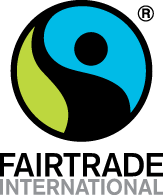 Fairtrade International is of the most common fair trade marks that you will see– in 2025, their website reported certifying over 2500 brands in over 100 countries, which offer a total of 36,000 Fairtrade certified goods globally (with over 100 certified Fairtrade brands in the US alone). Fairtrade certified products are mostly food items like coffee, tea, chocolate, bananas, rice, etc but the most well-known Fairtrade certified brand is probably Ben & Jerry’s Ice Cream.
Fairtrade International is of the most common fair trade marks that you will see– in 2025, their website reported certifying over 2500 brands in over 100 countries, which offer a total of 36,000 Fairtrade certified goods globally (with over 100 certified Fairtrade brands in the US alone). Fairtrade certified products are mostly food items like coffee, tea, chocolate, bananas, rice, etc but the most well-known Fairtrade certified brand is probably Ben & Jerry’s Ice Cream.
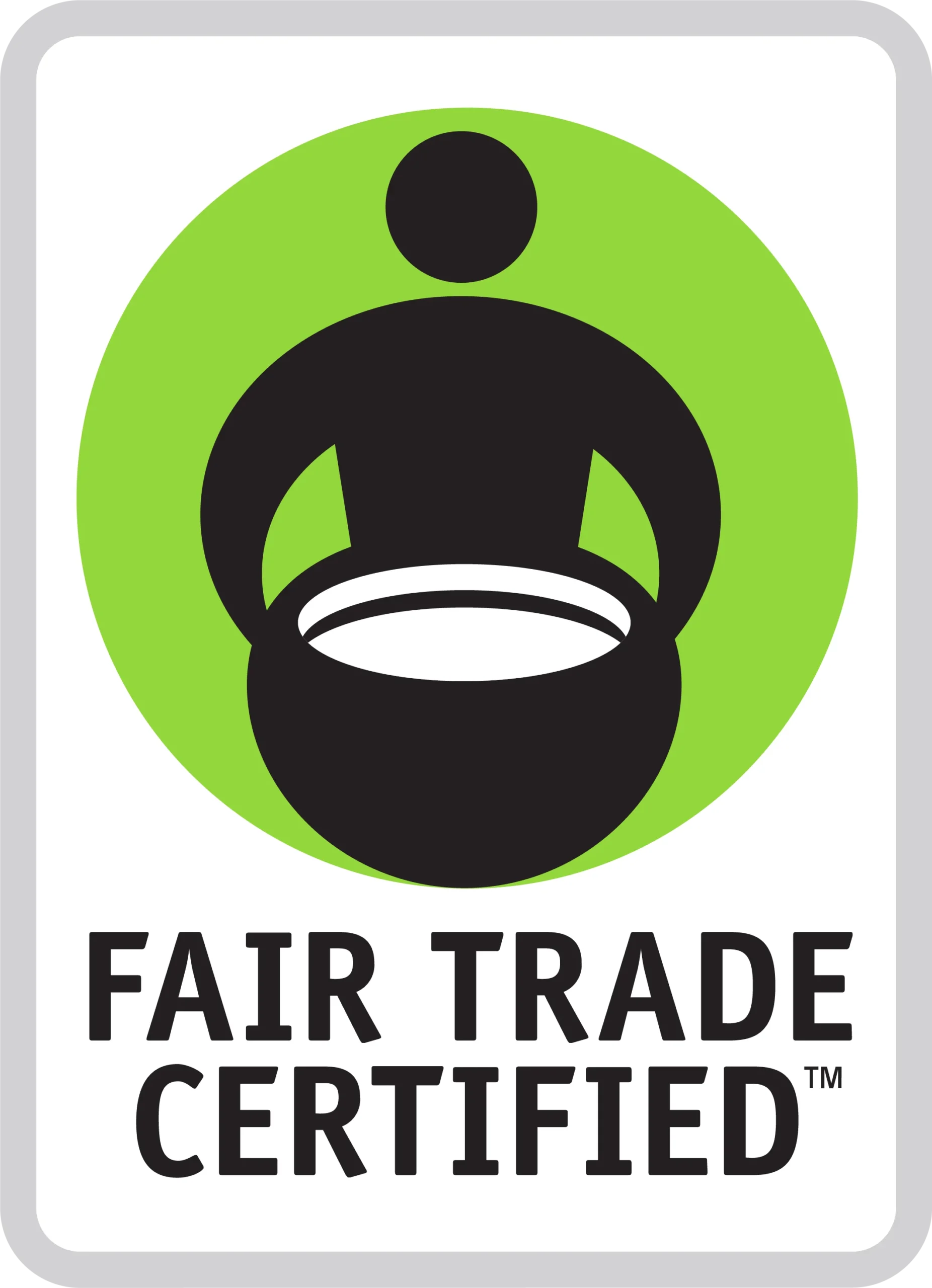 Fair Trade USA is another widely recognized label. Fair Trade USA was a member of Fairtrade International until 2012, when it resigned and decided to pursue its own approach to fair trade standards. Fair Trade USA works with more than 1500 companies and their standards apply to a diverse range of products, including beverages, clothing, flowers, food (such as produce, seafood, grains, snacks, candy, nuts, and dairy), health and beauty products, home goods, shoes, and sporting goods. Some well-known companies that carry Fair Trade USA certified products are Dole, Patagonia and Bob’s Red Mill.
Fair Trade USA is another widely recognized label. Fair Trade USA was a member of Fairtrade International until 2012, when it resigned and decided to pursue its own approach to fair trade standards. Fair Trade USA works with more than 1500 companies and their standards apply to a diverse range of products, including beverages, clothing, flowers, food (such as produce, seafood, grains, snacks, candy, nuts, and dairy), health and beauty products, home goods, shoes, and sporting goods. Some well-known companies that carry Fair Trade USA certified products are Dole, Patagonia and Bob’s Red Mill.
 Fair for Life is another fair trade label consumers in the United States might recognize. Fair for Life’s certification system is based on a non product-specified standard. Most food and non-food commodities alike – whether raw materials or finished products – can be certified. This is where Fair for Life differs the most from other certifications: every step of production can be certified, including producers, manufacturers and traders, whereas most certifiers simply certify the finished product or only a couple steps of the production. Another distinguishing aspect of Fair for Life is that they also certify entire companies as opposed to specific products produced by those companies. Today, there are more than 700 Fair for Life certified companies and organizations located in over 70 countries. Additionally, there are over 3,000 Fair for Life certified products available on shelves worldwide such as Dr. Bronner’s products, Theo Chocolate, and Alaffia.
Fair for Life is another fair trade label consumers in the United States might recognize. Fair for Life’s certification system is based on a non product-specified standard. Most food and non-food commodities alike – whether raw materials or finished products – can be certified. This is where Fair for Life differs the most from other certifications: every step of production can be certified, including producers, manufacturers and traders, whereas most certifiers simply certify the finished product or only a couple steps of the production. Another distinguishing aspect of Fair for Life is that they also certify entire companies as opposed to specific products produced by those companies. Today, there are more than 700 Fair for Life certified companies and organizations located in over 70 countries. Additionally, there are over 3,000 Fair for Life certified products available on shelves worldwide such as Dr. Bronner’s products, Theo Chocolate, and Alaffia.
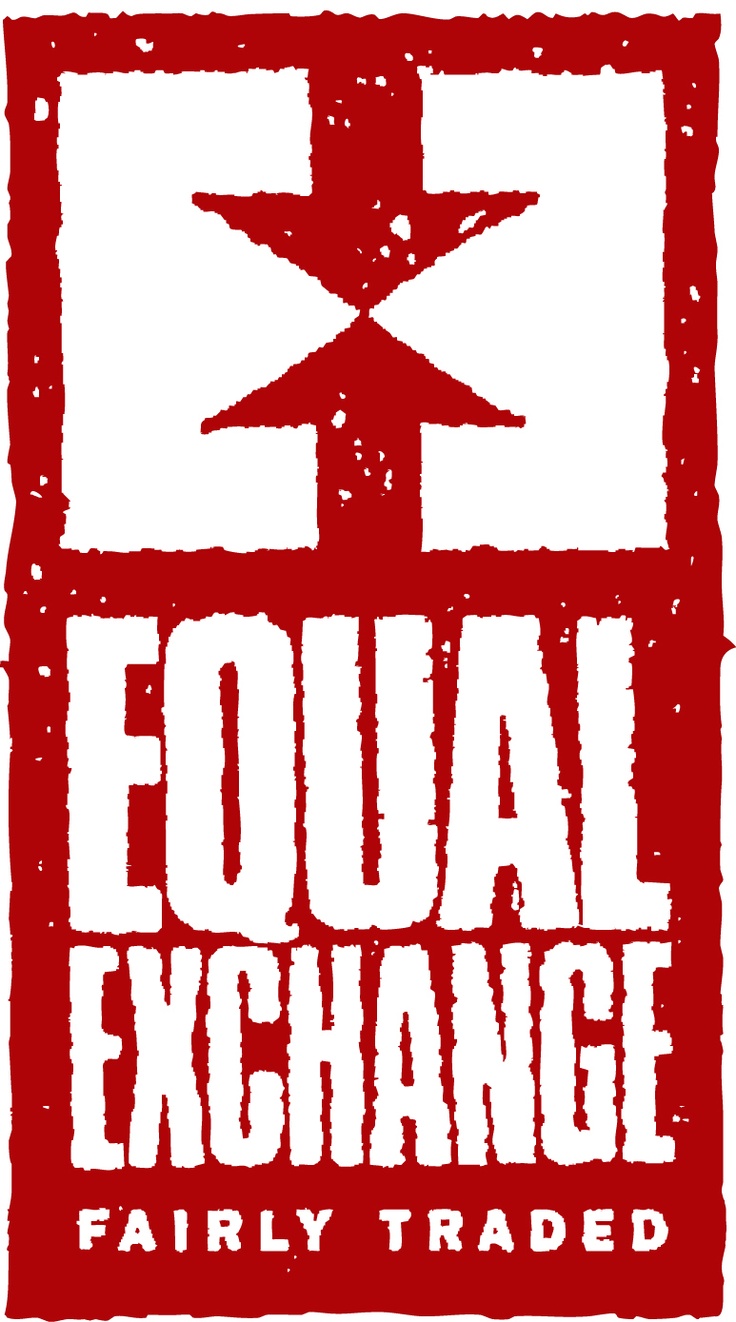 Although not a fair trade certifier, Equal Exchange was founded to challenge the existing trade model, which favors large plantations, agri-business, and multi-national corporations and focus on building direct, long-term relationships with farmer cooperatives and prioritizing transparency and direct pricing. The Blue Hill Co-op carries a number of Equal Exchange products, such as coffee, tea, chocolate, and bulk almonds.
Although not a fair trade certifier, Equal Exchange was founded to challenge the existing trade model, which favors large plantations, agri-business, and multi-national corporations and focus on building direct, long-term relationships with farmer cooperatives and prioritizing transparency and direct pricing. The Blue Hill Co-op carries a number of Equal Exchange products, such as coffee, tea, chocolate, and bulk almonds.
An important distinction on labels are the terms “fair trade certified” and “fairly traded.” Fair trade certified refers to commodities that are grown, and can therefore be monitored at a farm level. Products that are most commonly fair trade certified are Bananas, Coffee, Cocoa, Cotton, Herbs and Spices, Tea, Nuts and Oils, Textiles, Gold, Fruits and Juices, Honey, Flowers, Vegetables, Rice, and Quinoa. A t-shirt made from 100% cotton can be fair trade certified, but a product requiring more extensive manufacturing or involving multiple materials or ingredients (for example, a bracelet or a journal) cannot be fair trade certified at this time. This doesn’t mean that these items can’t be fairly traded. It just means there is no system in place to monitor the entire supply chain and there are simply too many variables for all the materials used. In a wide variety of handcrafted products, this is where fair trade membership groups come in, such as the World Fair Trade Organization (WFTO) and the Fair Trade Federation (FTF). These organizations are an important part of the global fair trade movement. They host events, conferences, campaigns and advocate for fair trade and organizations from all parts of the fair trade supply chain can apply to become members. In return for membership dues, each organization gains credibility, showing that they follow the fair trade principles in all they do.
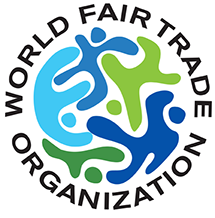 In operation since 1989, the World Fair Trade Organization (WFTO) is a global association that has formally acknowledged 400 producer cooperatives, marketing companies, importers, retailers, and regional and national support organizations as fair trade. WFTO recognizes its member organizations and retailers by determining their adherence to the 10 Principles of Fair Trade throughout their day-to-day processes. The WFTO serves Africa, Asia, Europe, Latin America, and the Pacific Rim and certifies organizations, not specific products.
In operation since 1989, the World Fair Trade Organization (WFTO) is a global association that has formally acknowledged 400 producer cooperatives, marketing companies, importers, retailers, and regional and national support organizations as fair trade. WFTO recognizes its member organizations and retailers by determining their adherence to the 10 Principles of Fair Trade throughout their day-to-day processes. The WFTO serves Africa, Asia, Europe, Latin America, and the Pacific Rim and certifies organizations, not specific products.
 The Fair Trade Federation (FTF) is a North American based trade association and a force in the global fair trade movement’s efforts to alleviate poverty and promote sustainable and equitable trading partnerships. The FTF’s 9 Principles were developed from the 10 principles of the WFTO (two principles were combined). The FTF verifies organizations that meet their fair trade principles by ensuring that businesses are committed to fair labor practices, pay living wages, and uphold other ethical standards.
The Fair Trade Federation (FTF) is a North American based trade association and a force in the global fair trade movement’s efforts to alleviate poverty and promote sustainable and equitable trading partnerships. The FTF’s 9 Principles were developed from the 10 principles of the WFTO (two principles were combined). The FTF verifies organizations that meet their fair trade principles by ensuring that businesses are committed to fair labor practices, pay living wages, and uphold other ethical standards.
Our global trade system is built upon a long history of colonialism and exploitation. Unfortunately, the trade market is being met with many new and unprecedented hurdles. Now more than ever, it is vital to seek out fairly traded brands and products that empower small-scale farmers and artisans around the globe to support themselves and their communities. It is important to remember that there is no such thing as a cheap product. Somewhere, someone in the supply chain is paying for it– whether that is us as consumers or the farmer who may be forced by the market into unfair and unsustainable deals. Fair trade certification is focused on building a model of conscious consumerism and while certification labels make it easy to know that your money is reaching producers, they are not an exclusive option. Whether certified or not, learning how to identify fairly traded products or materials and asking questions about sourcing will help you to determine if the goods you are purchasing align with your personal values.
We are proud to carry many fair trade products at the Blue Hill Co-op. Here are some products from around the store that are fair trade certified:
Grocery:
- JUST ICE TEA
- Tea (Traditional Medicinals, Numi, EcoTeas, Guayaki, Choice, Clipper, Pukka)
- Nutiva
- Bob’s Red Mill
- Wholesome sweeteners
- Chocolate (TCHO, Unreal, Divine, Tony’s Chocolonely, Lily’s, Little Secrets, Equal Exchange, Chocolove, Endangered Species, SunRidge Farms, Alter Eco, Hu, Justin’s, Pascha, Theo, Tazo, Lake Champlain)
- Equal Exchange (Coffee, chocolate)
- GoMacro
- Larabar
- Clif
- Rebbl
- Jovial
- Mavuno Harvest
- Harmless Harvest
- Field Day
- Nativas
- Cascadian Farms
- Zevia
- Grandy Organics
- Good Health
- Nature’s Path
- Cosmic Bliss Ice cream
Health and Beauty:
- Alaffia
- Dr. Bronner’s Soaps and shave gels
- Tera’s Whey protein
- Badger
- Andalou
Produce:
- Bananas
Bulk:
- Clove Powder
- Coarse Black Pepper
- Frontier Teas (Gunpowder, Irish, Assam, English, Jasmine, Earl Grey, Rooibos, Chai, Darleeling)
- Peanut Butter Malt Balls
- Equal Exchange Coffee
- 44 North Coffees (Peru, Guatemala, Royal Tar, Sumatra)
- Bucklyn Coffee (Brooklin’s Finest, Decaf Mexico)
- Almonds
- Coconut Oil
- Dr. Bronner’s Castille Soaps
General Merchandise:
- African Market Baskets
- Maggie’s Organic Socks
Beer & Wine:
- La Riojana Malbec/Bonarda from Argentina
- Stellar Organics Cabernet Sauvignon from South Africa
- Stellar Organics Live-A-Little, Really Ravishing Red from South Africa
**Note that some of these products only contain fair trade certified ingredients**
Want to learn more about the fair trade movement, what it looks like in action, and how it relates to you? Below you’ll find several resources we recommend starting with:
“Building More Just Trade” Webinar
Check out the World Fair Trade Organization (WFTO) podcast on Spotify and Apple Podcast!
This podcast is all about fair trade and the farmer and worker-led movements that are fighting for equitable food and farming systems. In every episode, WFTO takes you around the world to hear from farmers, workers, and activists involved along the supply chains of fair trade products.
Article by Sarah Scamperle, Marketing Assistant
